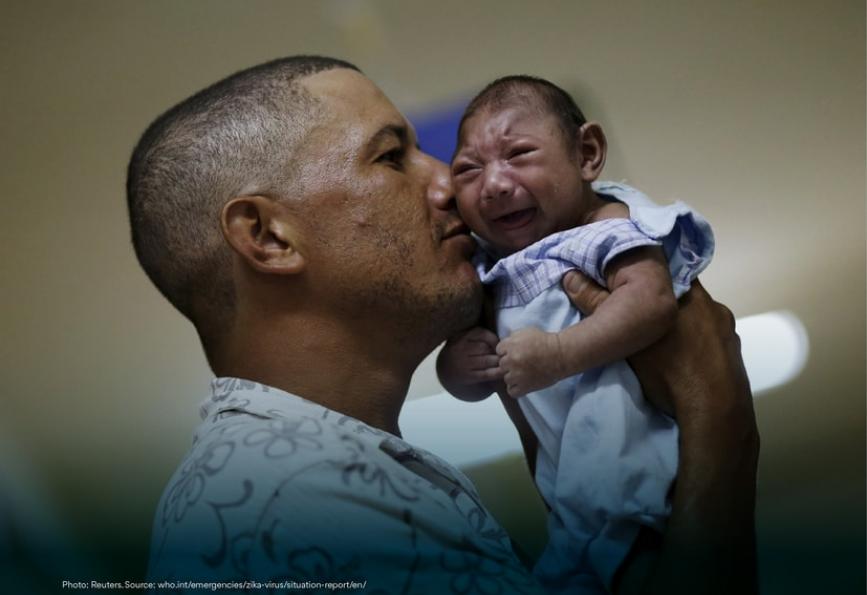
Published date: 10 Dec 2020
For a mother like Adriana, her child’s first birthday is a miracle.
Adriana’s daughter was born with Zika-related microcephaly, a birth defect resulting in a small head and a variety of developmental problems. The condition is caused by the Zika virus, transmitted by a mosquito to the mother during pregnancy.
In many cases it means a child is fighting for life from the moment they are born.
The biggest known outbreak of Zika occurred in 2015/16 in Brazil. The outbreak caused a global panic. A wave of fear among expecting parents who had seen the confronting images of babies with malformed heads; many of them struggling to see, hear or swallow food.
“The big problem is that the virus infects the developing foetus,” says World Mosquito Program director Scott O’Neill. “This results either in the unborn foetus dying or else surviving but without its brain fully developed. Which means the baby will have varying degrees of severe disability and likely not live to be an adult. In a context of poverty and no social safety net, it’s a disaster, emotionally and economically.”
Adriana’s baby is gradually learning to respond to certain stimuli. Although she can’t yet sit up and has limited vision. Caring for her is a full-time job. And nobody can tell Adriana what the future might hold for her baby.
This year, the panic has shifted to COVID-19. As has the focus for health resources. Yet the Brazil Ministry of Health identified 579 new suspected cases between December 2019 and February 2020.
The problem has not gone away and the complexities of the disease are only beginning to be fully understood. There still remain more questions than answers.
The World Mosquito Program has been working on a solution. Its method for preventing the spread of dengue has shown extremely promising results and can be applied the same way to prevent the spread of Zika.
Professor O’Neill is optimistic his project could have an impact in Brazil and anywhere else the virus exists.
“We don't yet have field evidence as there have not been any Zika outbreaks in areas we have deployed but lab studies show our Wolbachia method stops transmission to the same extent as dengue.”
The impact of the virus is obvious for a family like Adriana’s. But it extends beyond the family home, especially in regions where it has been prevalent – where poverty is often wide-spread and the capacity of health systems is poor.
While the world’s concerns lie more directly with the current global pandemic, we shouldn’t be too quick to turn our backs on other viruses when we don’t know when or where they will unleash their devastation next.
*Adriana's name has been changed to protect her identity

